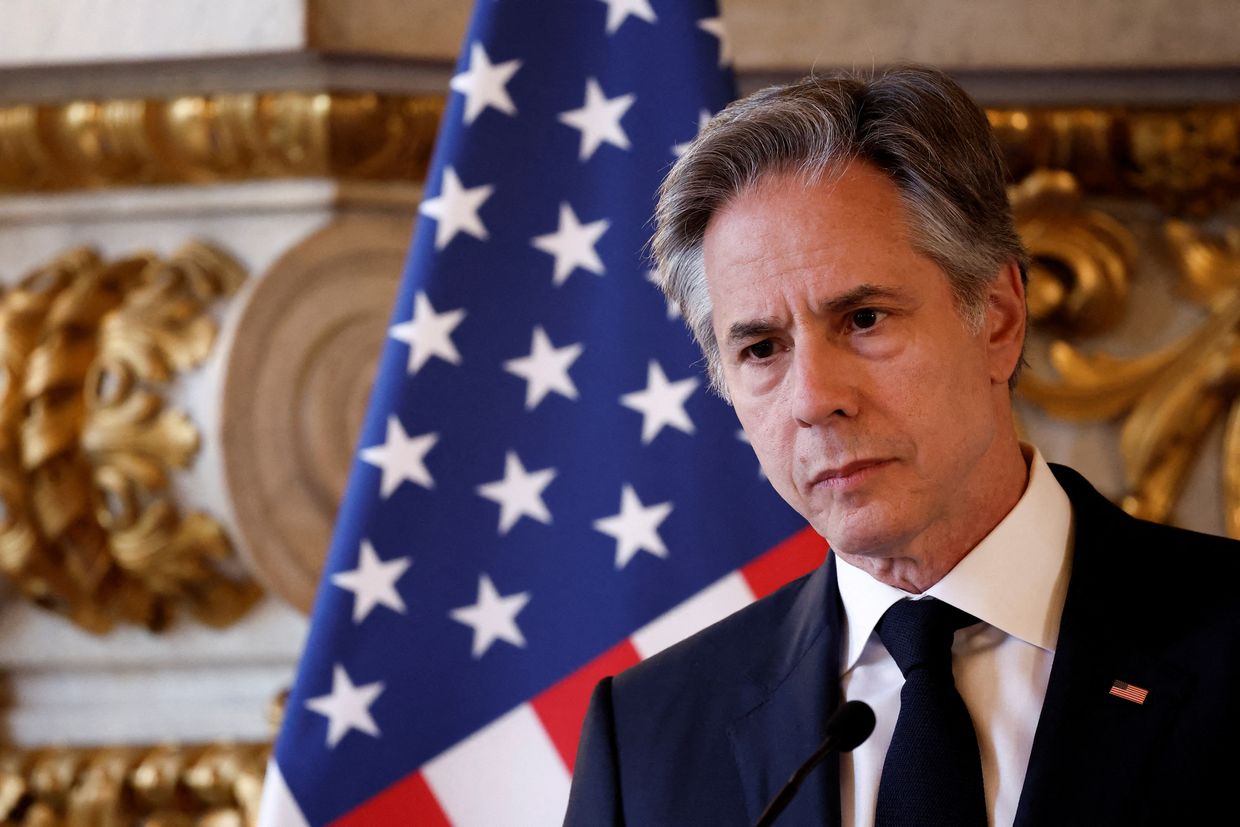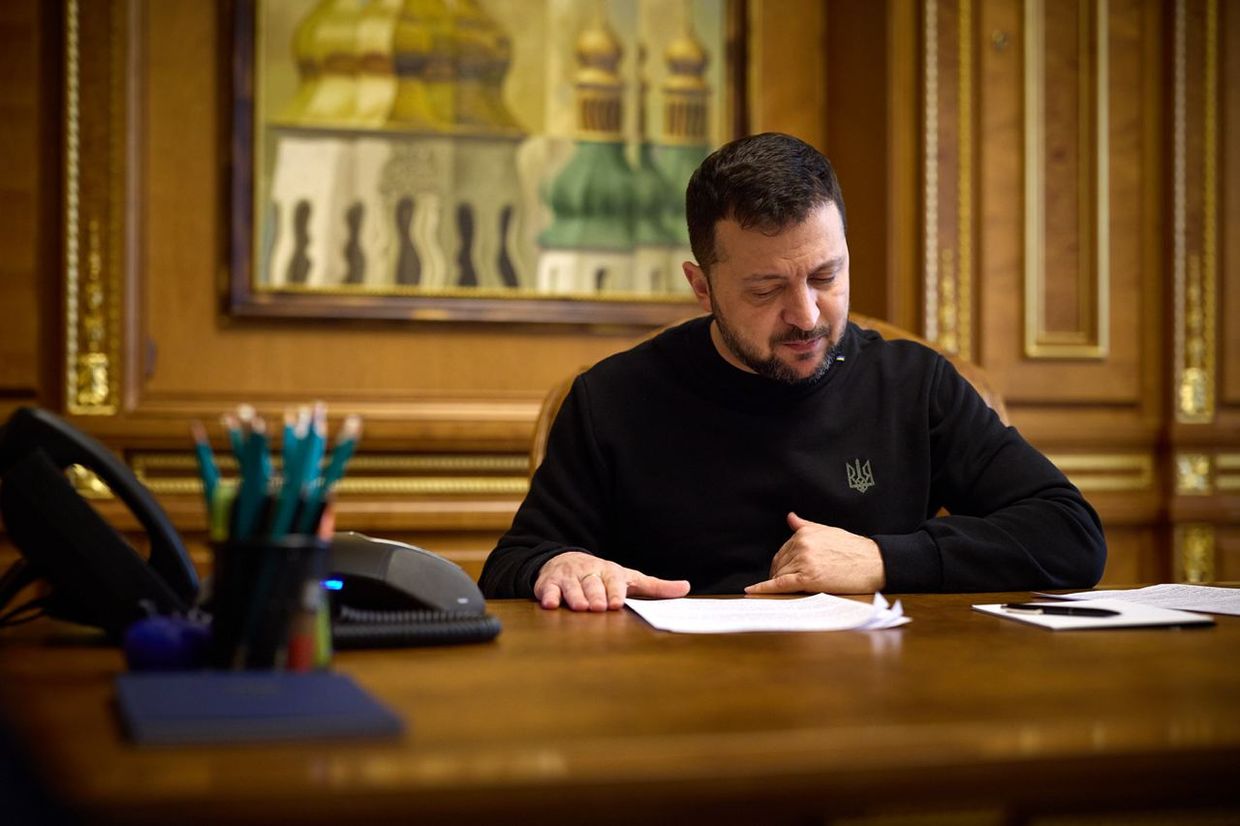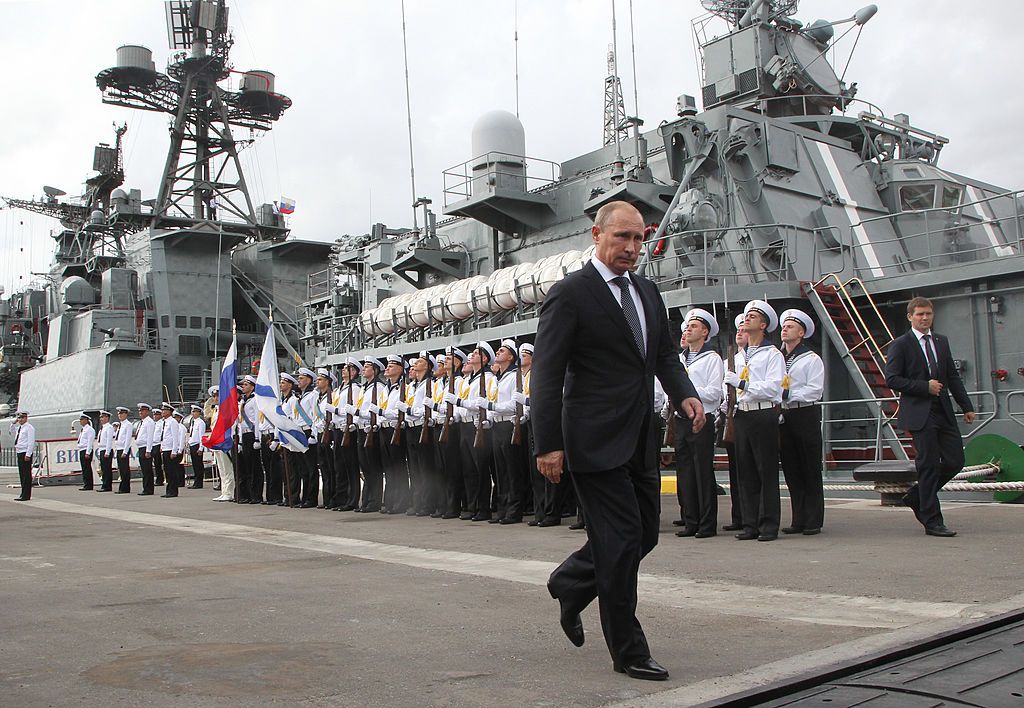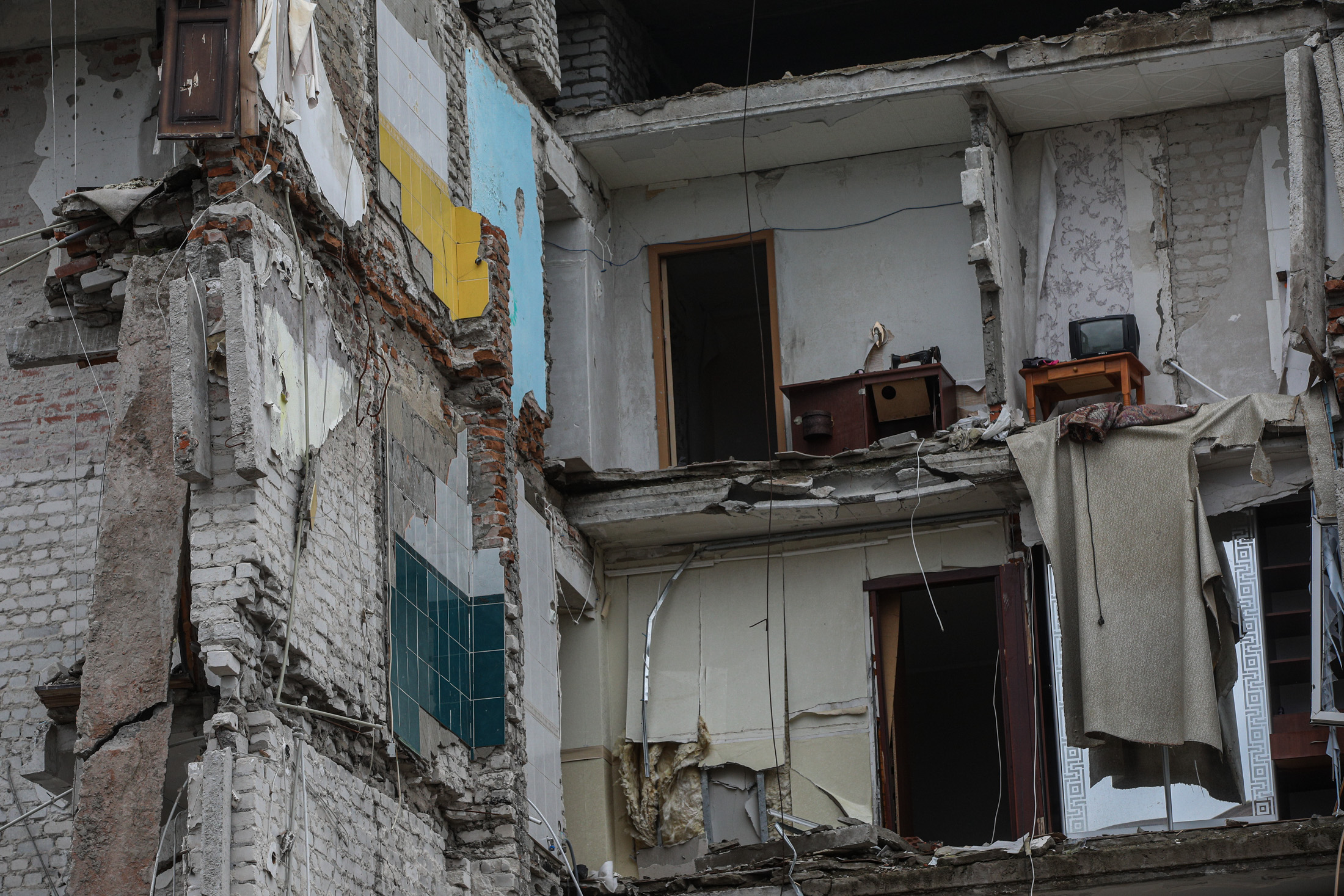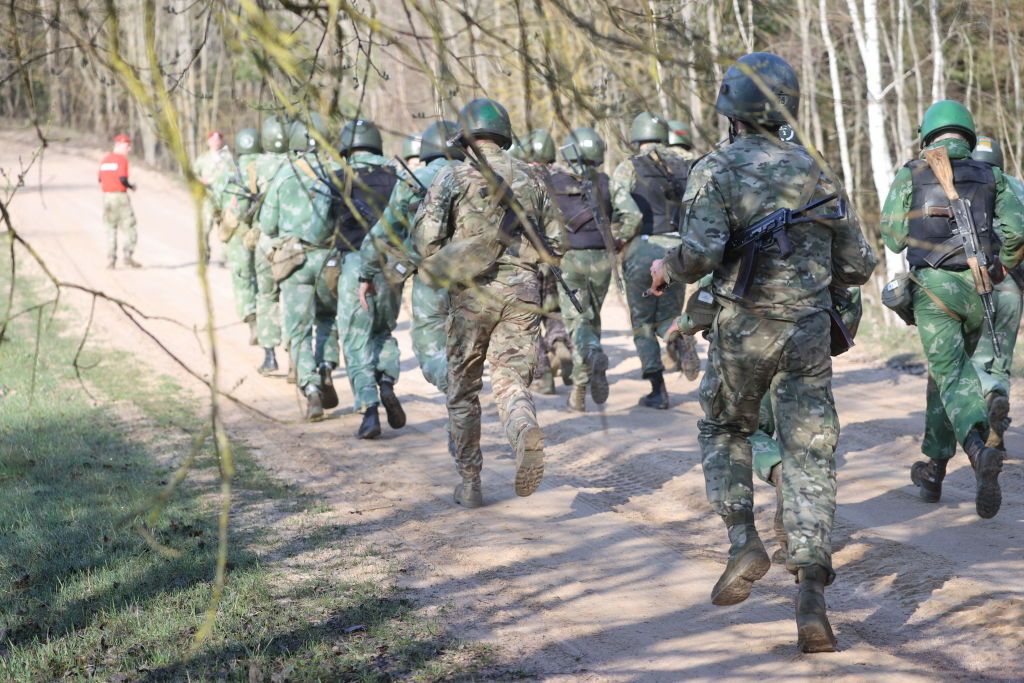Ukraine war latest: Ukraine hits drone factory, oil refinery deep inside Russia

Key developments on April 2:
- Ukraine hits drone factory, oil refinery in Russia's Tatarstan
- Zelensky signs several laws on mobilization, making younger men eligible for draft
- Putin appoints new Black Sea Fleet commander
- Russia's missile attack against Dnipro injures 18, including 5 children
- Government allocates additional $144 million for fortifications
Ukraine targeted industrial facilities in Russia's Tatarstan on April 2, around 1,300 kilometers from the Ukrainian-Russian border, a source in Ukraine's military intelligence agency (HUR) told the Kyiv Independent.
The targets included a manufacturing facility for Shahed-type attack drones, said the source, not authorized to talk to the press.
Russia's military has used Iranian-designed Shahed-type kamikaze drones to attack Ukraine's cities and critical infrastructure regularly throughout the full-scale invasion, killing and injuring dozens of civilians.
Ukraine also used a long-range drone to target one of the country's largest oil refineries, located in the city of Nizhnekamsk, a source in the Security Service of Ukraine (SBU) told the Kyiv Independent.
The attack on the Nizhnekamsk oil refinery was a joint operation carried out by the SBU and HUR, the source said.
The Ukrainian drone hit the refinery's primary oil processing facility, which has an annual production capacity of around 8 million tons, amounting to 2.6% of Russia's total annual oil-processing capacity, the source said.
Over past weeks, Ukraine has carried out increasingly regular attacks on Russian oil refineries and other industrial facilities with long-range drones.
The press service of the Republic of Tatarstan claimed that drones had hit industrial facilities in Tatarstan's Yelabuga and Nizhnekamsk, allegedly injuring several people, but without causing "serious damage."
The enterprises were "not disrupted," according to the local authorities. The Kyiv Independent is unable to verify claims made by Russian authorities.
The Washington Post reported in August 2023, citing leaked documents, that Russia was setting up a production line in Tatarstan aiming to build 6,000 attack drones by the summer of 2025.
The manufacturing plans entailed an expansion in the scale of production of a Russian version of Iranian Shahed drones, which would improve on"Iran's dated manufacturing techniques."
The documents revealed that the production facilities were at the Alabuga special economic zone, in Yelabuga, the same location of the alleged drone strike on April 2.
Kyiv has intensified its efforts to ramp up domestic production of drones, a critical tool on the battlefield, aiming to manufacture 1 million drones this year.
Digital Transformation Minister Mykhailo Fedorov said on April 1 that Ukraine has domestically-produced attack drones capable of flying over 1,000 kilometers.
The U.S. has "neither supported nor enabled strikes by Ukraine outside of its territory," U.S. Secretary of State Antony Blinken said at press conference in Paris on April 2.
Zelensky signs several laws on mobilization, making younger men eligible for draft
President Volodymyr Zelensky signed three laws introducing changes to mobilization, according to Ukraine's parliament website, on April 2.
Within the new legal framework, Ukrainian men between 18 and 25 can be conscripted for compulsory military service, while men between 25 and 60 may be drafted to fight.
During martial law, only men who are over the age of compulsory military service, as well as men aged 18-25 who had previous military experience, can be mobilized for the war effort.
The law decreased the maximum age for compulsory military service from 27, allowing younger men to be mobilized for combat.
The president also signed into force the creation of an online register for conscripts and canceled the "partially eligible" status in the military medical examinations.
From April 2, there will be only two categories in the medical reports, "eligible" and "non-eligible." The person who was previously examined as "partially eligible" must be re-examined.
Ukraine's government aims to update the legal framework around mobilization to ramp up its number of available troops in 2024.
Ukraine's parliament is now considering a new bill that would increase the number of troops in Ukraine's military formations after its initial contentious version was withdrawn.
According to the Defense Ministry, lowering the age of compulsory military service will reduce unnecessary expenses and allow more men who are fit for military service to be mobilized.
The conscripts can also go through 12-month treatment without mandatory medical examination, be exempted from serving due to the need to take care of sick children under the age of 14 years old, and go on a vacation after childbirth or getting wounded, according to the newly introduced law.
Putin appoints new Black Sea Fleet commander
Russian President Vladimir Putin appointed Vice Admiral Sergey Pinchuk as the new commander of Russia's Black Sea Fleet, state news agency RIA Novosti reported on April 2.
The U.K. Defense Ministry reported in its March 31 intelligence update that Pinchuk had replaced Admiral Viktor Sokolov after Ukraine carried out several successful strikes against the Black Sea Fleet.
Pinchuk "has likely sought to improve the survival chances of Russian vessels by adopting further preventative and defensive measures, including narrowing the entrance gap to port facilities," the ministry said.
Pinchuk was born in Sevastopol, Ukraine, and has been deputy commander in chief of the Black Sea Fleet since May 2021. He has been sanctioned by the U.K., the EU, Australia, and Switzerland for his role in the Russian full-scale invasion of Ukraine.
Russia's missile attack against Dnipro injures 18, including 5 children
Russia launched a missile attack against the city of Dnipro in the afternoon on April 2, Dnipropetrovsk Oblast Governor Serhii Lysak reported.
At least 18 people were injured, according to Lysak. Twelve of the injured, including five children, were hospitalized as of 8:20 p.m.
A kindergarten and sports college were damaged as a result of the attack but children were hiding in a bomb shelter when it occurred, Lysak said.
President Volodymyr Zelensky said in his evening address that the buildings of a college and a kindergarten were damaged in the attack.
The air raid alert went off in Dnipropetrovsk Oblast at 4:25 p.m. local time. The first explosions were reported at around 4:40 p.m. local time.
Russia previously attacked Dnipro with drones overnight on April 2, causing two fires due to the debris falling. A two-story building and a fire unit were reportedly damaged.
Government allocates additional $144 million for fortifications
Ukraine will allocate an additional Hr 5.6 billion ($144 million) to fortify Donetsk, Kherson, Zaporizhzhia, Mykolaiv, and Sumy oblasts, Prime Minister Denys Shmyhal announced on April 2.
The Ukrainian authorities have faced criticism for slow progress on fortifying defensive lines. A working group was established in November to coordinate fortification efforts.
In March, President Volodymyr Zelensky announced that Ukraine was building 2,000 kilometers of fortifications across three lines of defense, adding that the "task is massive, but the pace is good."
The Ukrainian government has already allocated Hr 20 billion ($512 million) for building fortifications in 2024, according to Shmyhal.
The biggest chunk of the recently allocated sum, Hr 1.5 billion ($38 million) will be spent in northeastern Sumy Oblast, Hr 1.1 billion ($28 million) in eastern Donetsk Oblast, Hr 1 billion ($25 million) in southeastern Zaporizhzhia Oblast, Hr 400 million ($10 million) in southern Kherson Oblast, and Hr 300 million ($7.7 million) in southern Mykolaiv Oblast.
"The work continues 24/7. All of these are needed to strengthen our defense and protect our soldiers," Shmyhal wrote on his Telegram channel.
Earlier, the Wall Street Journal (WSJ) reported that Ukrainian troops are building fortifications in expectation of a Russian offensive in the spring, though there are concerns that the progress is not fast enough.
President Volodymyr Zelensky said in an interview with CBS News that a new major Russian offensive may come at the end of May or in June.


